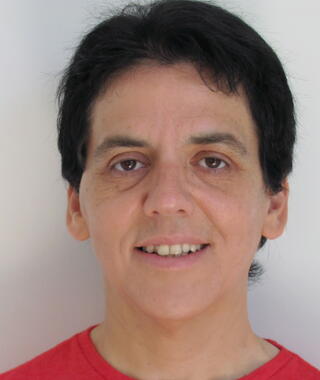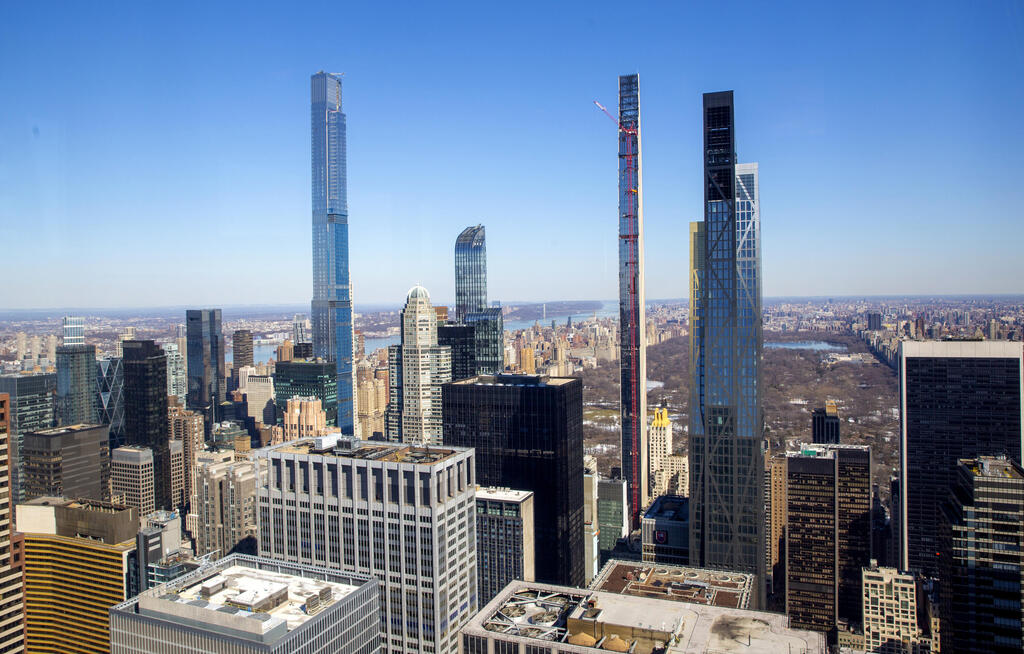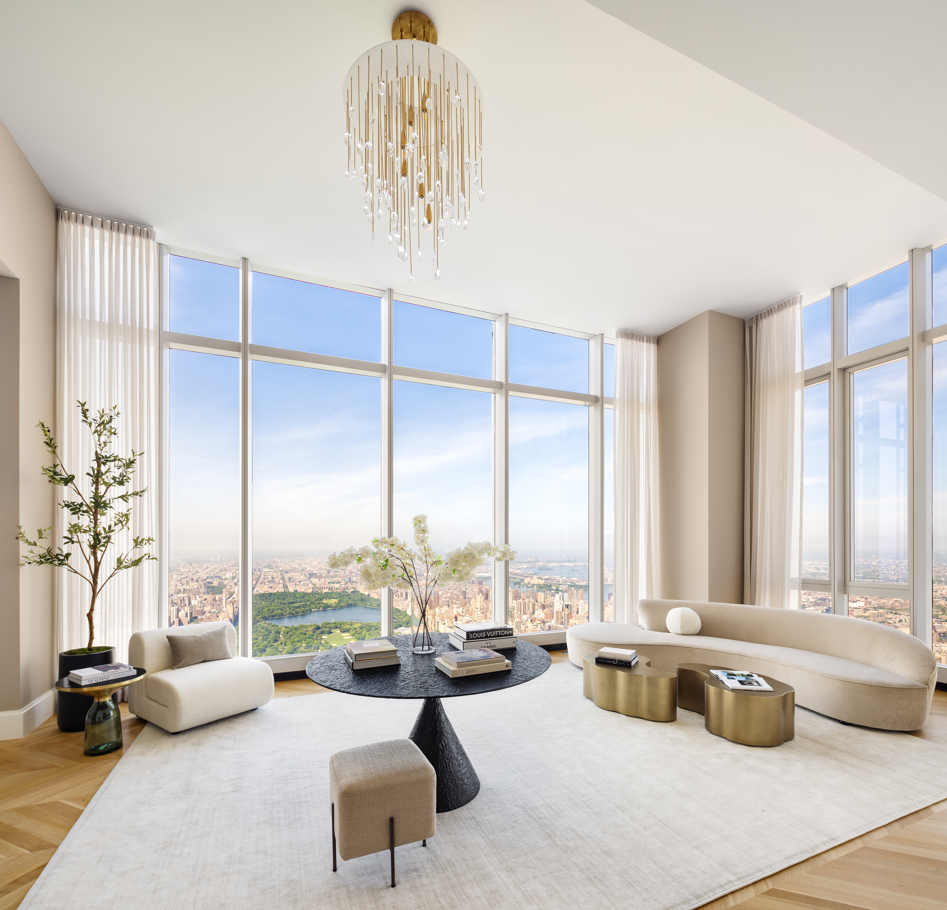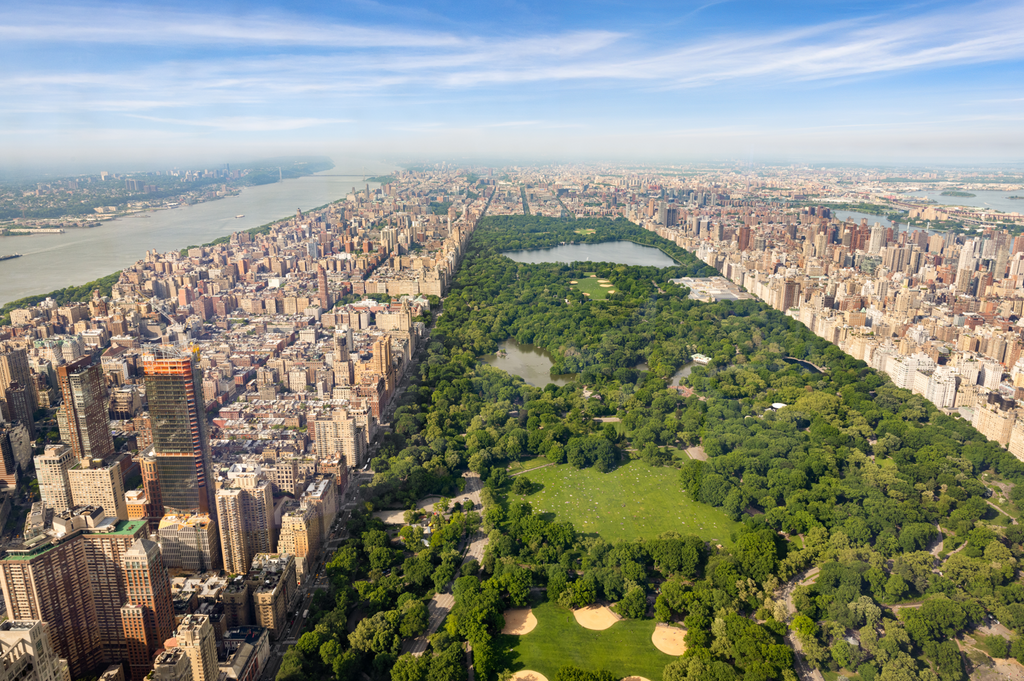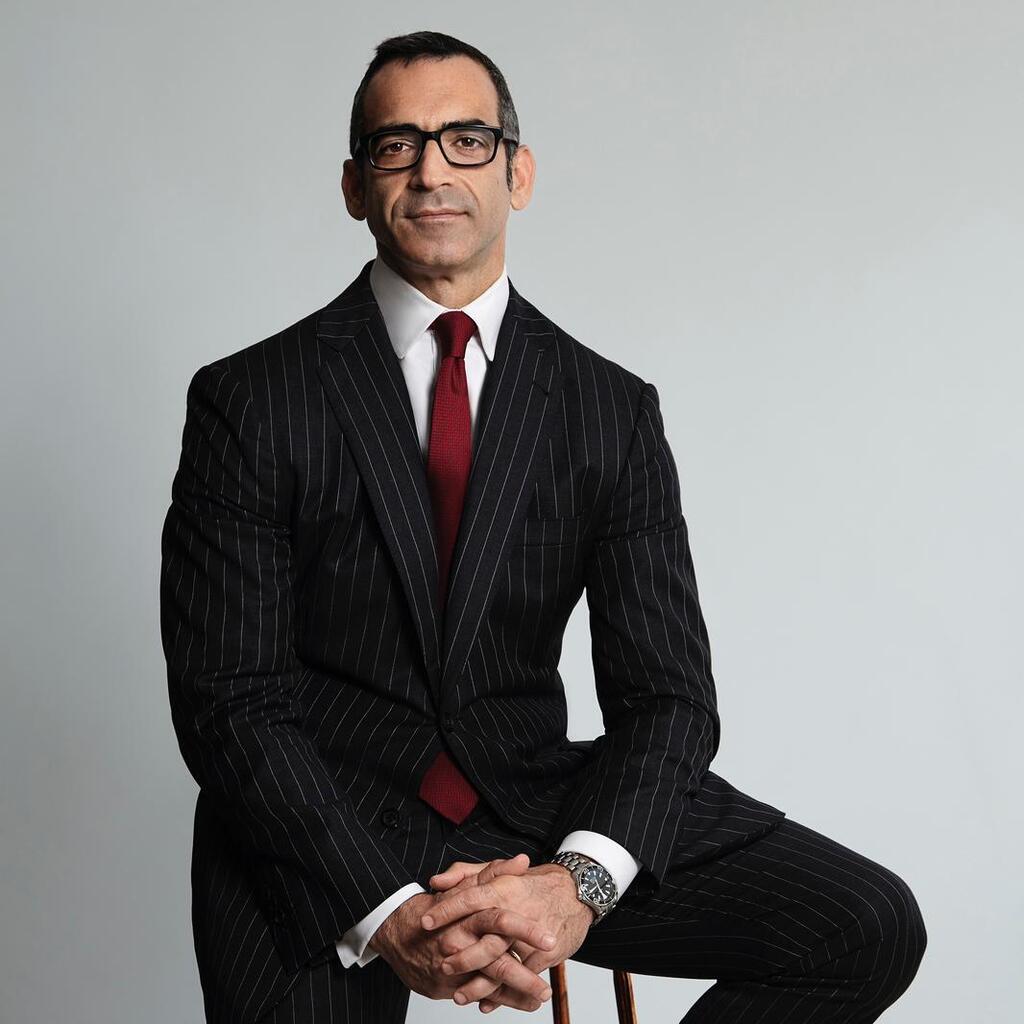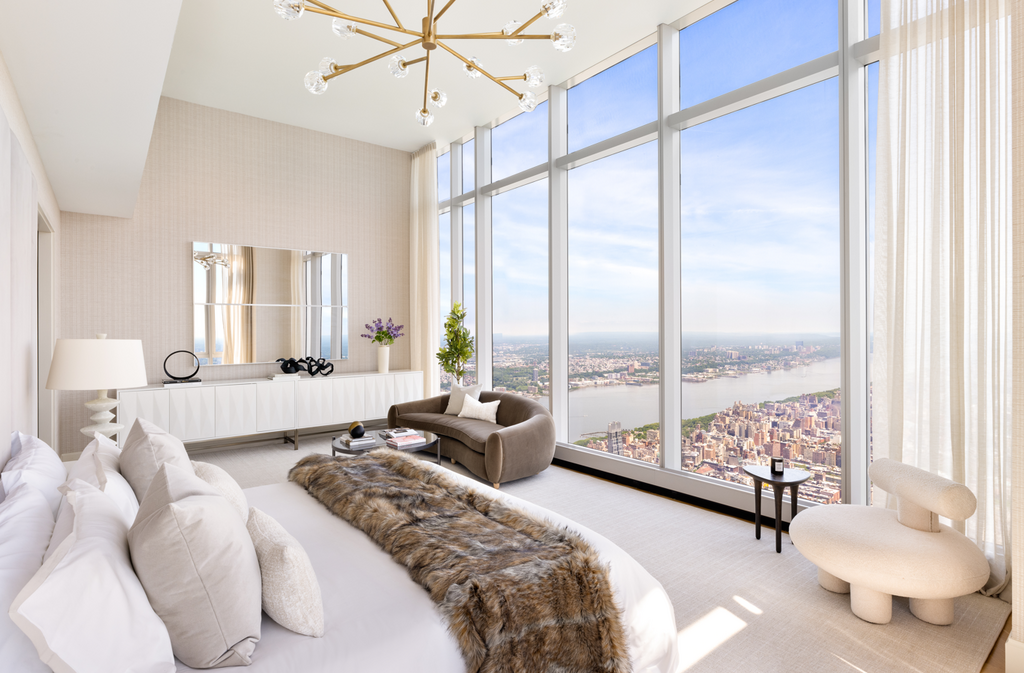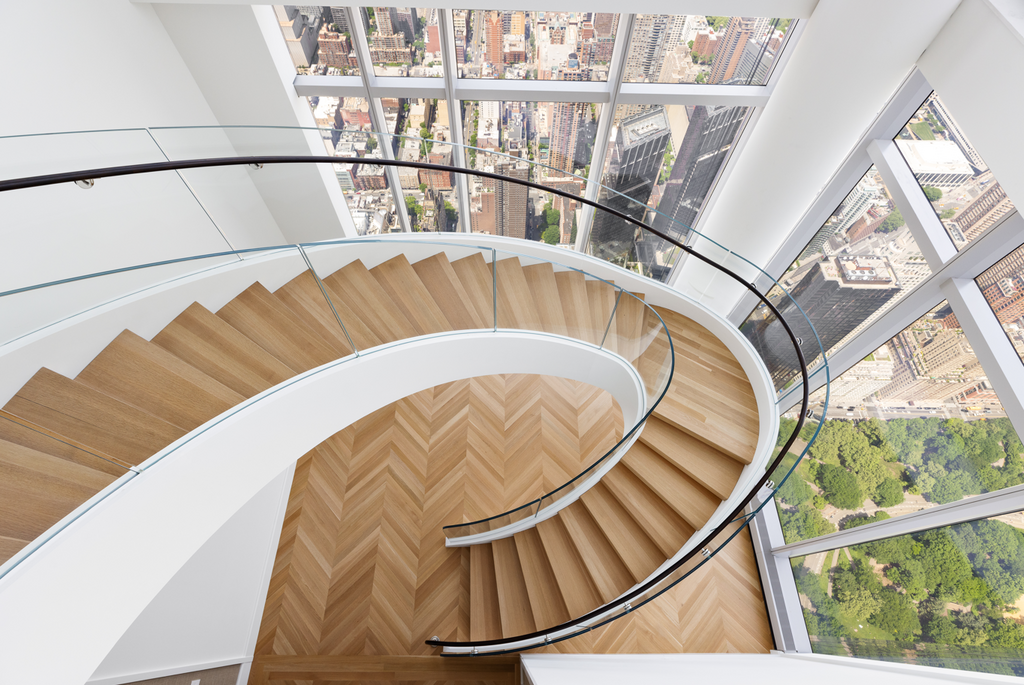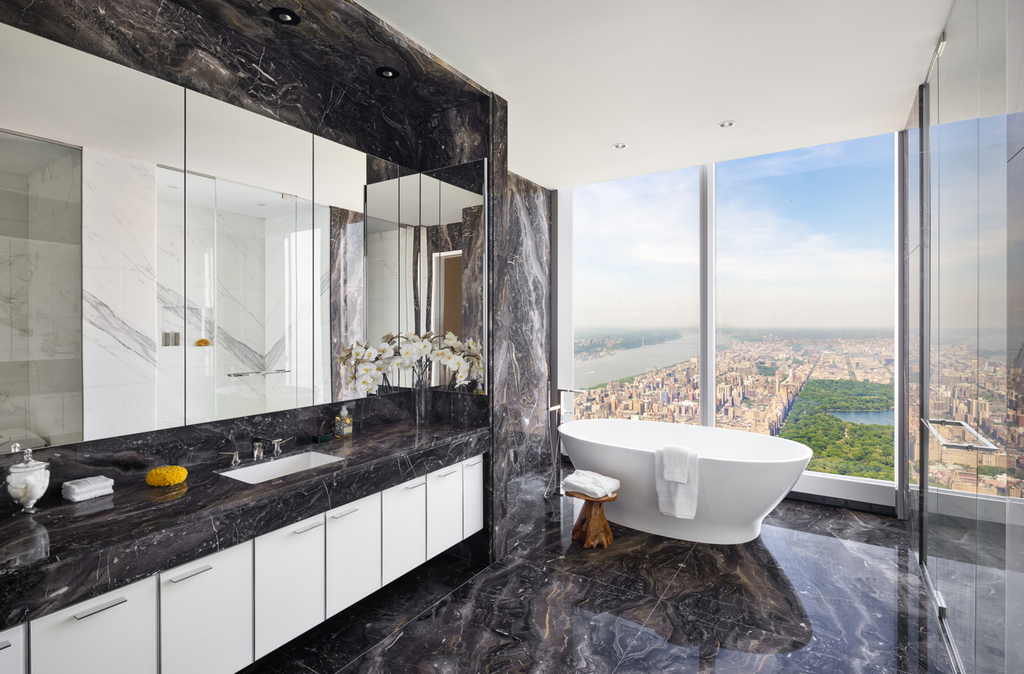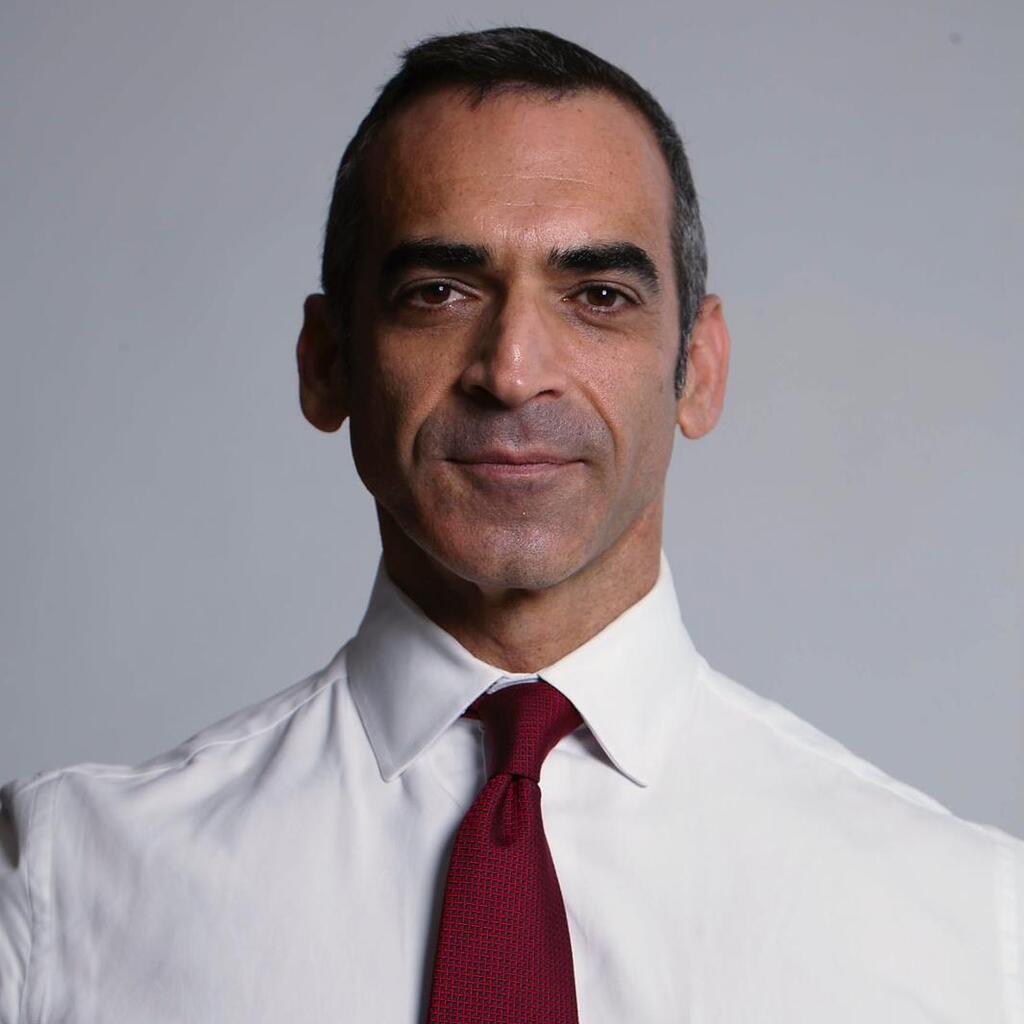Getting your Trinity Audio player ready...
If you walk down Manhattan’s East 57th Street, between 7th Avenue and Broadway and look up, you can’t even see the top of building #217.
Central Park Tower stretches 1,550 feet into the sky and is the tallest residential building on Earth. Way, way up there, on the 127th floor, is a two-floor apartment with a floorspace of over 10,000 square feet—the most expensive apartment currently up for sale in New York.
Exclusive Manhattan real estate up for grabs with eye-popping price tag
(Video: Dronehub)
The duplex has eight bedrooms, a walk-in closet the size of an average New York studio apartment, an internal elevator (in case you’re finding it hard to walk up the stairs to the second floor), two dining rooms and a kitchen that’s rather small considering anyone who can live in this apartment isn’t really doing the cooking.
Most importantly, however, anyone living here can rightfully lay claim to the best view in the world: Out of the huge windows, you can see all of New York City from Central Park through to the Statue of Liberty, the Hudson River, the East River and the bridges connecting Manhattan to Brooklyn and New Jersey. You can see sunrise in the morning, sunset in the evening, snow and lightning in the winter, fall in the autumn and the flowers blooming in Central Park in spring. As helicopters fly over New York City at their maximum altitude of 1,000 feet, from the duplex, you look down and can’t hear a thing.
All this – in a building with a restaurant and a private chef exclusively for residents, two pools, a gym the size of a public gym, work areas, a cinema - because why not - is now on the market for anyone with $150 million. The man looking for the one buyer willing to reach into their very deep pockets and spend this amount, always remembers he’s Shlomi from the streets of Kiryat Shalom.
'Even for billionaires, it’s not pocket change'
Shlomi Reuveni arrived in New York City at the age of 15 with his parents in 1982, and very soon understood this was where he was supposed to be. He was dabbling in real estate by the time he was 18 with a hunger, still unsatiable, and an enormous confidence in his own abilities. Had he been told then, that 40 years on, he’d be given the coveted and stressful task of selling the Big Apple’s most expensive apartment, he might have agreed the chances were slim, but not non-existent.
“This business is very hard,” says Reuveni in Hebrew, with very little trace of an accent considering he’s been living outside of Israel for decades. “I was lucky enough to meet very good people, who believed in me and opened doors for me. I still wake up every morning hungry, as I’ve learned that everyone takes care of themselves here, and I don’t want to go back. I’m from a good family, but not exactly rolling in money. There were times I couldn’t buy a subway ticket. So, I work and I push, and I’m here now.”
This is a fantasy. Who are the target customers for a place costing $150 million?
“The whole of 57th Street is known as Billionaire’s Row as only billionaires can afford it. It draws people from all over the world.”
Is the clientele more American or foreign?
“More foreign.”
Why?
“If you ask where best and safest to put your money is in the current geopolitical climate, the answer is probably the U.S. So potential buyers are mainly from Asia and the Middle East. There’s also a lot of money in India right now. But sometimes I’m surprised myself. I’ve got a potential buyer for this apartment who’s actually American.”
Do people who buy apartments like this actually live in them?
“Some do, but others buy so as to put their money somewhere they feel is safe, diversifying their investments. It really is like a safe in the sky.”
Central Park Tower was built in 2019 and this apartment is still waiting for its first buyer. “Selling an apartment like this is very, very hard,” says Reuveni. “Obviously, only billionaires can afford it, but even for billionaires, it’s not pocket change. Think about it. If a person has a billion dollars, he’s putting 15% of it into buying this apartment.
"There are lots of billionaires in the world and they’re not all looking for an apartment here, but the potential buyer will tell themselves that this is the highest apartment in the best building in the best city in the world. Ego and status definitely play a role. There’s a sense of satisfaction about even being able to consider buying an apartment like this. But people with egos also have accountants and business managers and they all look at the numbers - where to invest or not invest. At the end of the day, every deal has to make sense.”
If you buy this apartment, you may never be able to sell it. How many apartments are there costing over $100 million?
“A handful. To build an apartment like this, the developer must believe the clientele is there. In the data for the past ten years, you can count on the fingers of one hand the apartments of this scale that were sold. A similar apartment was sold for $115 million in this building two months ago, but 20 stories down. Even at this height, 20 stories make a difference. So, the buyers are out there, you just need to find them with a fine toothcomb. If you wait for the client to show up, you’re not doing the work. This isn’t the kind of apartment you advertise online.”
Get the Ynetnews app on your smartphone: Google Play: https://bit.ly/4eJ37pE | Apple App Store: https://bit.ly/3ZL7iNv
If you can’t sell an apartment like this, it is a failure, or simply impossible?
“Nothing’s impossible. Even in real estate, everything has its other half. If I bring the price down from $150 million to $75 million, will I sell? For sure, but I want to get as close to my price as I can. If an apartment on a lower floor sells at $115 million, I know I can sell this apartment for more.”
'We breathe this city'
In 2017, Reuveni founded his own company, Reuveni Development Marketing, specializing in new developments, a very specific sector of New York City’s ruthless real estate market. He works with developers before they’ve even started building.
“A developer will come to me and say, ‘Shlomi, I have the option of buying this spot. If I turn into a residential building, what return can I expect?’ We do an analysis, specifically addressing New York’s many angles – by neighborhood, area, whether it’s a corner building, how high we can build and what product we need to create at this specific spot to get the highest numbers in two to three years. It’s a very thick book. Lots of apartments aren’t selling right now because of decisions made about the building three or four years ago. You can find yourself lumbered with 100 apartments that aren’t selling because you decided to build them as two-bedroom apartments, and the neighborhood’s changed and they now want three-bed apartments.”
But it’s almost like a crystal ball. How can you know what will happen in two years’ time?
“Yes, it is a crystal ball, but based entirely on data and analysis of the whole city. Each neighborhood in the city is almost a little city of its own in terms of demography, demand, development and price. I’m not the smartest man in the market. Everyone has the same data. Everyone knows how many apartments were sold last year in a given area in the city. But we have something that doesn’t rely just on what’s written down, but rather on understanding New York City. We breathe this city.”
Give me an example.
“Google bought an office building in the West Village for $2 billion and they’re expecting 10,000 new employees. Some already live in the city, but lots will be coming over from the West Coast. They need apartments. Some will rent, but others will buy. Where will this mass of employees buy? Close to the office in the West Village – a great area, but very expensive. So, they’ll start looking in other areas. Lots of these guys are people making a great deal of money and they have families with children, and then you have other considerations like schools, safety, parks. We know the travel time from the Upper West Side to the Village is very short, by subway or even driving, and the Upper West Side is the best area for families in New York City, so we now have lots of buyers from Google for buildings on the Upper West Side.”
Reuveni wasn’t involved in Central Park Tower from the very beginning and regards the developers themselves coming to him as one of his greatest achievements. “I think that, over the years, we’ve built ourselves a good reputation in the city,” he says.
Manhattan's most expensive apartment
(Video: from YouTube)
“A year ago, we signed a partnership with Christie’s, one of the world’s biggest public auction houses with a 250-year-old brand, a $7 billion business selling the most expensive art in the world, to the richest people in the world, and a network of real estate companies under their name. Connecting with them means I have exclusivity on the Christie’s name on new developments in New York. Big developers in the city notice. They pay attention to things like this.”
“A developer may personally like me, but his only question is whether I can sell the apartment for him, whether this is the best decision for him in terms of public relations and market perception. He has other real estate brokers, so he’s also thinking about how it’ll look if he gives me such an important apartment. The politics are complicated. I assume I wouldn’t be standing here with you now if people who’ve invested lots of money in this building didn’t believe in me.”
'Everything collapsed'
Reuveni has come a long way since he didn’t have enough money for the subway and was jumping over entrance barriers. But It’s not as if he didn’t have his big crisis moments: “The 2008 crash was really very hard,” he says. "September 11 taught me existential lessons, but after eight, nine years of business success, then came 2008. Everything collapsed and there was an end-of-the-world feeling. By then I was a father, and we were in an enormous panic. It totally changed me. I sold the car, changed my lifestyle, switched to a spartan mindset as I felt everything around me had actually been BS, and it was all over in the blink of an eye. I learned not to rely on anyone else and to take nothing for granted. I had to completely start over.”
How do you keep a work-life balance in all this craziness?
“I have three daughters. One is in college. The others are five and seven. My wife, Sharon, runs a café on the Upper West Side and my family life keeps me grounded. The wheel never stops turning here.”
Do you really never feel like stopping?
“For sure, but there’s always one more stage to reach, and I have a psychological thing about the fear of failure, the fear of going backward. I’ve been smarter in recent years. I’m taking care of myself both physically and mentally. I see things differently and I’m more careful. The combination of my profession and New York City can be very dangerous.”
I assume coming back to Israel isn’t on the agenda.
“After I got here as a teenager, I had no connection with Israel for around ten years. I became addicted to this city, friends, girlfriends, the pace, action and energy. I’m totally rooted here, but I can’t say what’ll happen in the future. I’m very concerned by the antisemitism and the situation in Israel is very hard. Perhaps the Middle East will change in a few years, or in a generation’s time, and Israel will become a magnet for the world. In the meantime, we visit Israel a lot and I think in both Hebrew and English. At home, we only speak Hebrew. I don’t know if I’m Israeli. I’m certainly not American, but I’m definitely a New Yorker.”


